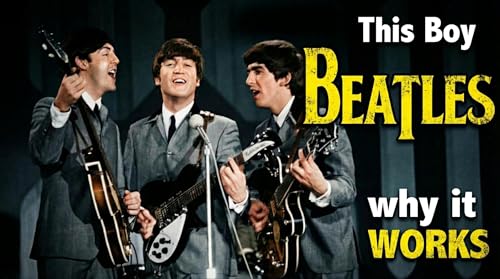On June 25, 1967, 400 million people across 25 countries witnessed an unprecedented feat: The Beatles performing live via satellite for Our World, the first global TV broadcast. Organized by the European Broadcasting Union, the project was a massive logistical triumph that took ten months to coordinate. Representing the United Kingdom on the broadcast, the Beatles chose to perform “All You Need Is Love.” The song did more than top the charts—it crystallized a cultural moment, provided the definitive anthem for the Summer of Love, and launched John Lennon’s legacy as a humanitarian voice. 🌍A Song Built for the WorldThe Beatles faced a unique challenge: they needed a message simple enough for a global audience to grasp in “basic English,” yet profound enough to justify their status as cultural visionaries. Manager Brian Epstein noted that the song was an “inspired message” designed so it cannot be misinterpreted. John Lennon, the song’s primary composer, deliberately crafted simplistic lyrics as a form of “propaganda for change.” “I’m a revolutionary artist,” he declared. “My art is dedicated to change.” He credited his love of slogans and television advertising for the song’s directness, favoring absolute terms like “nothing,” “no one,” “nowhere,” and “all.” The song existed in Lennon's mind before the Our World invitation, but the broadcast's requirements—a simple message for 400 million viewers—acted as a creative filter. Without these constraints, Lennon might have pursued the intricate, studio-bound experimentation that characterized the post-Sgt. Pepper era. Instead, the deadline demanded simplicity, producing not artifice but clarity: a revolutionary anthem stripped to its core." 🎨🕊️The timing was flawless. The broadcast served as the international heartbeat of the Summer of Love, a social phenomenon where as many as 100,000 people converged on San Francisco’s Haight-Ashbury district to experiment with communal living and psychedelic art. By performing this track at the height of that season, The Beatles effectively exported the counterculture movement to the entire planet. They were no longer just pop stars; they were the secular prophets of a global manifesto. 🕊️Musical Complexity Disguised as SimplicityDespite its singalong refrain, the song is a rhythmic labyrinth. The verses use an asymmetric time signature totaling 29 beats—shifting between 7/4 and 8/4—before finally settling into a steady 4/4 beat for the chorus. This instability creates a “sway” that draws the listener in, even if they can’t quite pinpoint why the rhythm feels so unique. 🎼The song’s intro and coda are a postmodern musical melting pot. It opens with the French national anthem, “La Marseillaise,” and ends in a joyous collective anarchy, quoting everything from Glenn Miller’s “In the Mood” to the Beatles’ own “She Loves You.” This collage approach reflected the era’s ideal of blending cultural boundaries, turning a pop recording into a global celebration. 🎷Music critic Richie Unterberger later called it “the best footage of the Beatles in the psychedelic period,” capturing Flower Power at its zenith, with enough irreverence to “avoid pomposity.” The Global StageThe broadcast at EMI Studios (now Abbey Road) was a masterclass in staged spontaneity. The Beatles were surrounded by balloons, flowers, and an all-star gallery including Mick Jagger and Eric Clapton. While the appearance looked like a casual hangout, it was a carefully choreographed cultural statement. The studio resembled a medieval gathering merged with cutting-edge 1967 technology. 🎬But the atmosphere in the control booth was anything but relaxed. Because the broadcast was live and irreversible, the crew faced the terrifying possibility of a satellite link failure or a catastrophic audio glitch in front of a huge audience. Producer George Martin and engineer Geoff Emerick were so nervous they hid a bottle of scotch beneath the mixing desk as the cameras rolled. Despite the do-or-die pressure, the band nailed the live elements—vocals, bass, and that iconic guitar solo. 📺Immediate Impact and Cultural ResonanceReleased as a single in July 1967, the song hit Number 1 in the US and UK almost instantly. It formally announced Flower Power as a mainstream reality, shifting the global consciousness toward peace and love as legitimate political aspirations. That summer, the band even investigated buying a Greek island to start a commune—a testament to their genuine commitment to the ideals they sang about. ✌️Sociomusicologists noted that the broadcast confirmed the Beatles’ “evangelical role” in a world waiting for a new direction. As psychiatrist R.D. Laing observed, the whole human race was finally seeing itself as one species in a global village, unified by the power of music rather than the shadow of conflict. 🤝Among the skeptics, ...
続きを読む
一部表示

 11 分
11 分 9 分
9 分 9 分
9 分

